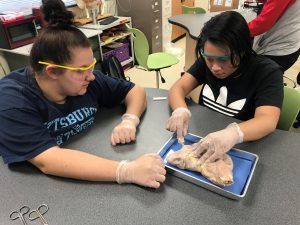Find your own pathway
Discover your interests, unleash your talents, and soar into your future - start searching for your pathway today.

Agricultural education provides systematic instruction to students in the areas of agriculture, food and natural resources. Through these subjects, agricultural educators teach students a wide variety of skills, including science, math, communications, leadership, management and technology. Agricultural education prepares students for successful careers and a lifetime of informed choices in the global agriculture, food, fiber and natural resources systems.
Through agricultural education, students are provided opportunities for leadership development, personal growth and career success. Agricultural education instruction is delivered through three major components.
• Classroom/Laboratory instruction
• Supervised Agricultural Experience programs
• Leadership Development
Students enrolled in agricultural education courses can pursue the following pathways:
• Animal Systems
• Equine Science
• Natural Resources Systems
• Plant Systems (Horticulture)
• Power, Structural, and Technical Systems (Agriculture Mechanics)
• Sustainable Agriculture Production
FFA is the Career & Technical Student Organization for Agriculture Education.
Students in CTE classes are also eligible for National Technical Honor Society (NTHS).
Discover your interests, unleash your talents, and soar into your future - start searching for your pathway today.